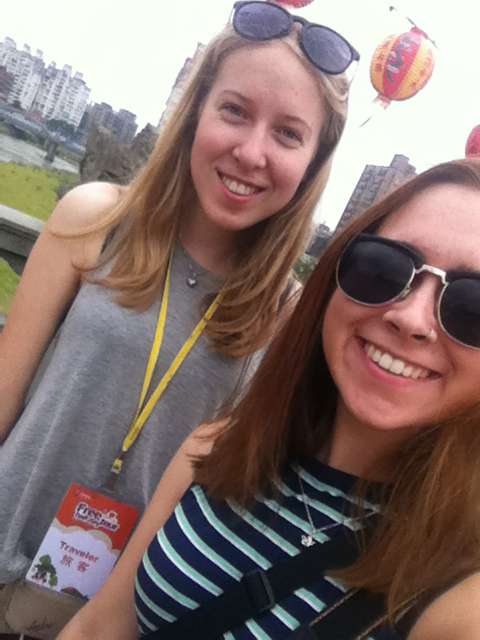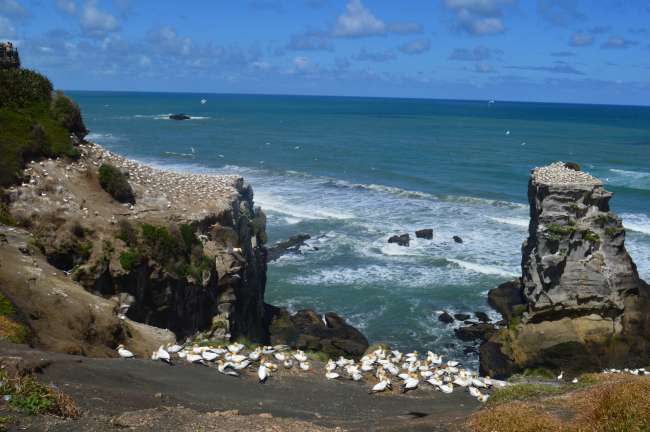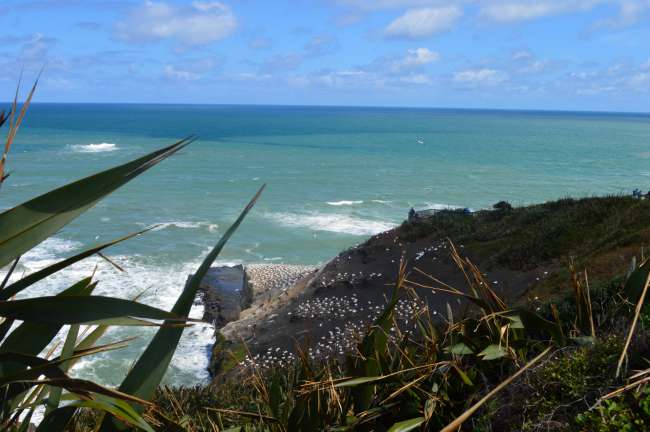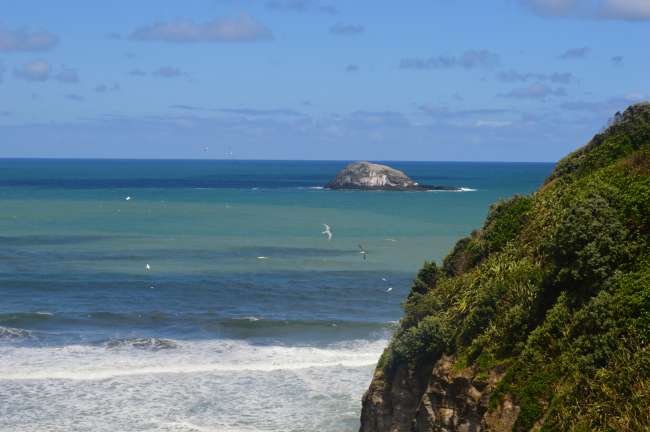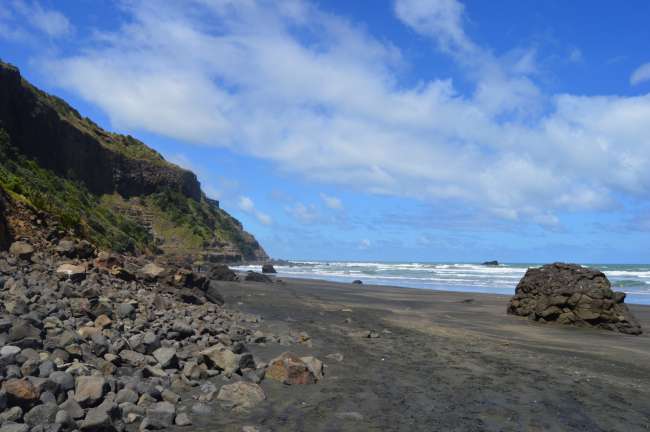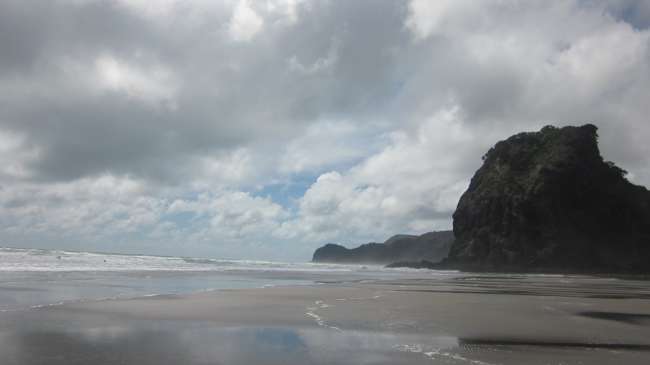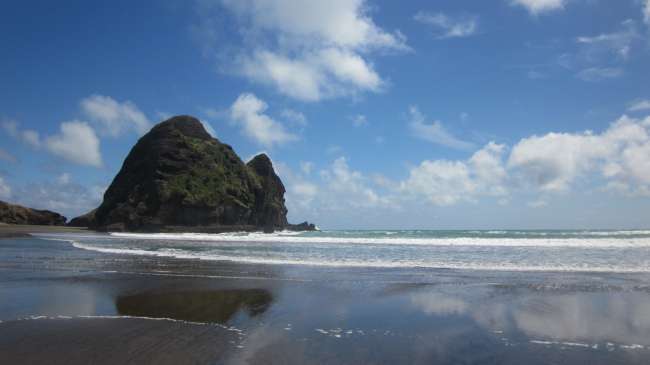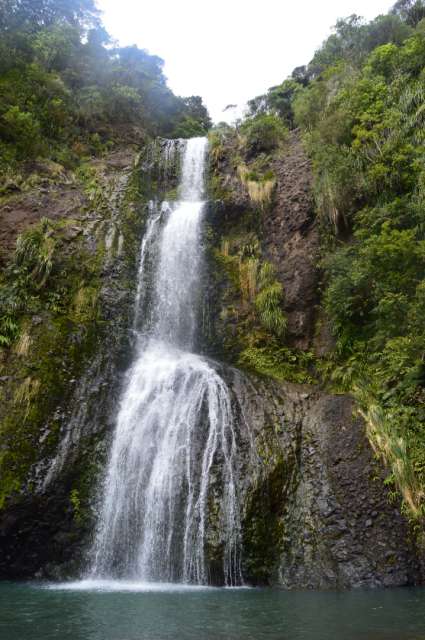28.10.2016 Incident with the Police
પ્રકાશિત: 16.11.2016
ન્યૂઝલેટર પર સબ્સ્ક્રાઇબ કરો
Today we headed back to Auckland. But not to the city center, which we already knew quite well, but further west to Muriwai Beach. This beach was recommended to us by John and Silvie (the two from Mangawhai). This black sand beach is home to a Gannet colony, which was quite spectacular to watch (if you ignore the smell).



The beach itself was also beautiful. The sand sparkled in the sun and the beach section was not particularly long, but wide and empty. There were a few surfers riding the waves. A dreamlike image reflected in front of me.

Afterwards, we went to Piha, which was not far away. However, something happened on the way that I wouldn't wish upon anyone. The police stopped me (us) with their sirens on. At that moment, when I looked in the rearview mirror and quietly said 'Jasmin, the police are driving behind us with their sirens on. I think we should stop', my heart was racing. I had no idea what I had done wrong. I was driving on the right side of the road and I wasn't speeding. So, I stopped. The police officer in the car behind us took his time getting out. It felt like an eternity as he sat in his car, wrote something down, and then slowly got out and came over to us.
I opened the driver's door and the police officer greeted me with a 'Hello, vehicle check. Can I see your driver's license please.' Something like this had never happened to me in Germany, which is why I was probably twice as nervous as I would have been if I had already experienced a similar situation at home.
Embarrassingly, my hands were shaking pretty badly when I handed him my driver's license. 'Oh, you're from Bremen,' he said excitedly. 'I've never been there, but I've been to Munich before.' The start of a strange small talk. I said that Bremen is nice and he said that he enjoyed his vacation in Germany.
Only then did he finally explain why he had stopped us. It had nothing to do with me or my driving, nor any mistakes I had made. He had stopped us because of our car, which he cautiously referred to as a 'garbage car'. Which means that 'The drivers of these cars are usually not the rightful owners, but people who have stolen this car.' The police officer explained to us that this type of car is often stolen or broken into, and since he saw that all of our luggage was open in the trunk on our mattress, he had stopped us to inform us about this and to check if we were the actual owners of this car.
He warned us to never leave any valuables in the car and to stay away from parking lots where we see broken glass on the ground. Furthermore, he gave us two yellow cards that stated that all valuables had been removed from the car and that there were no more valuable items inside. From now on, we were supposed to stick these cards to our window whenever we parked in a public parking lot. Supposedly, this deters potential thieves.
After this conversation, the police officer still didn't want to leave for a long time. He asked me how long we would be staying here, what our next destination was, and how long we had been in New Zealand. Jasmin said, after the police officer finally left with a 'have a nice time', that I seemed relatively calm, but I was glad when the uniformed man finally stopped the small talk and let us continue driving.
I stopped at the next parking lot. I can hardly describe how I felt, but I really couldn't just continue driving like nothing happened.
Crazy, we were stopped with sirens on because a police officer wanted to tell us that our car was a garbage car. So, we had two jelly toasts to celebrate.
Arriving in Piha, we first went to the beach and then to the Piha Waterfall (Kitekite Falls), which was impressively beautiful, but in my opinion, the one in Whangarei was even more beautiful.
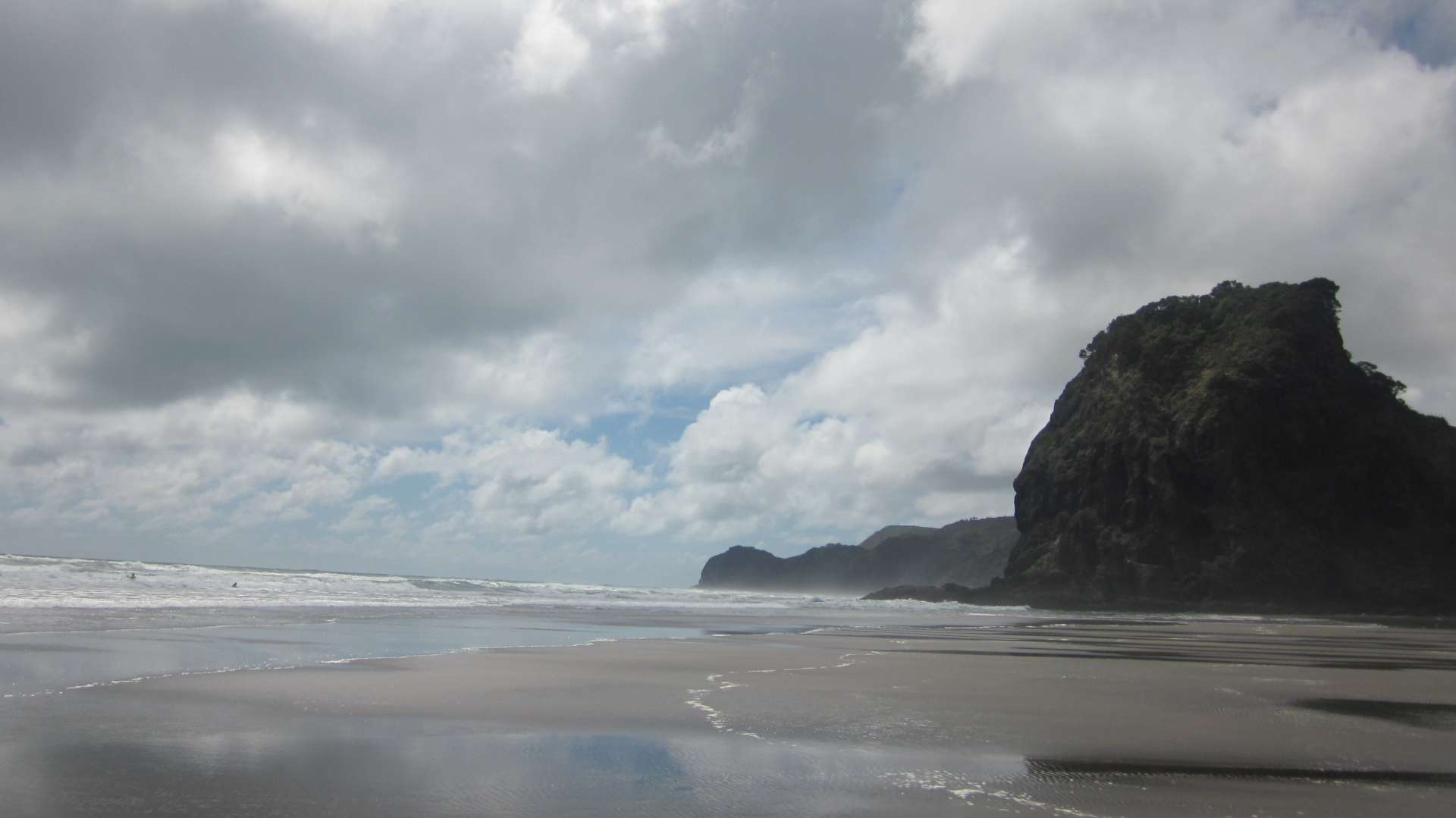


We spent the night at a campground in Te Kauwhata, which felt more like a public parking lot. However, the restrooms were clean and it was relatively quiet, so we could sleep well.
Jana
ન્યૂઝલેટર પર સબ્સ્ક્રાઇબ કરો
જવાબ આપો

મુસાફરી અહેવાલો ન્યૂઝીલેન્ડ

